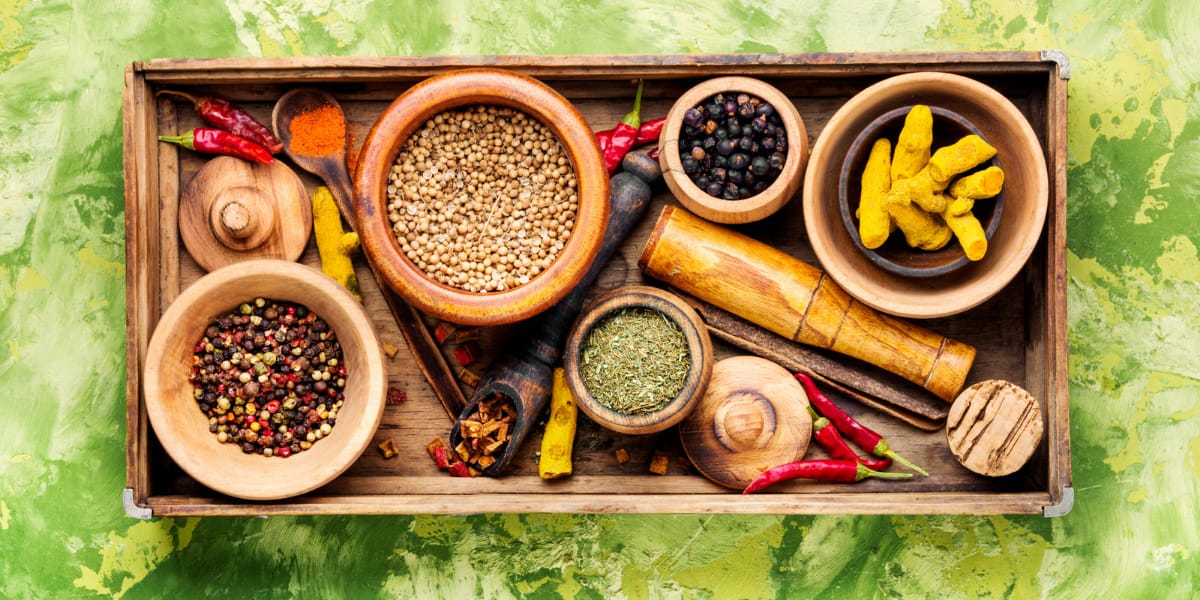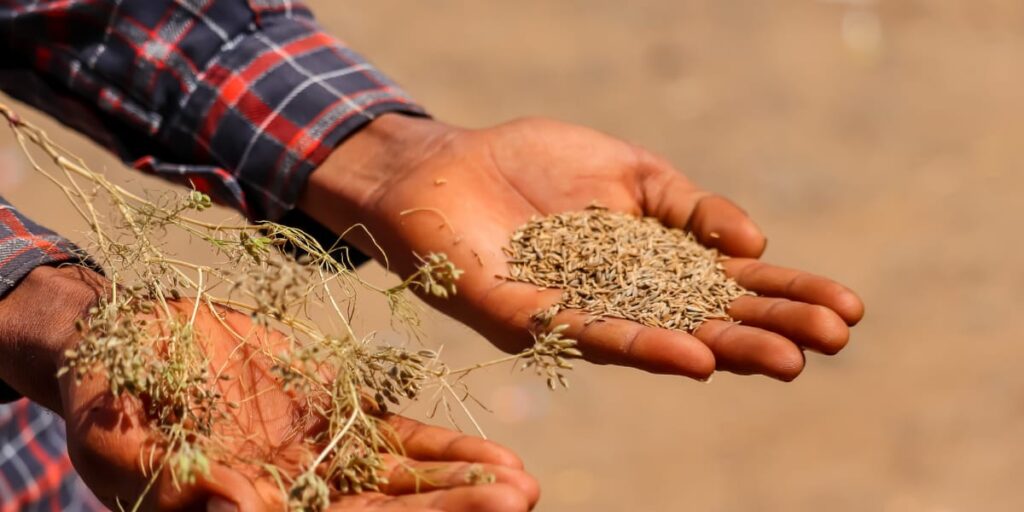Throughout history, seeds used as spices have been essential to many different culinary traditions. These tiny but powerful components give food a burst of flavor and a heady scent when used as spices. Gaining knowledge about the various kinds of seeds that are used as spices will improve your cooking abilities and gastronomic adventures.
The Significance of seeds used as spices in Culinary Traditions
The little powerhouses of taste and nourishment are seeds. They have been prized for their capacity to improve and alter food since ancient times and even in contemporary kitchens. Every seed has a specific profile that adds distinctive qualities to different cooking styles. Here, we examine some of the most widely used spice seeds and their culinary and medicinal uses.
Cumin: The Earthy Aromatic
Culinary Uses
A common ingredient in various cuisines, especially Mexican, Middle Eastern, and Indian, is cumin (Cuminum cyminum). Its earthy, warm flavor is unique and adaptable. You can use whole or ground cumin seeds to add flavor to soups, stews, baked products, and curries.
Health Benefits
Beyond its taste, cumin offers a plethora of health advantages. It has anti-inflammatory properties, strengthens the immune system, and facilitates digestion. Including cumin in your diet has been shown to improve general health.
Coriander: A Citrus Symphony
Culinary Uses
Coriander seeds, or Corriandrum sativum, are prized for their delicate, sweet-lemon flavor. In spice mixtures like curry powder and garam masala, these seeds are indispensable. To fully extract their flavor, they are frequently roasted. This gives depth to a variety of foods, from sauces to sweets.

Health Benefits
The capabilities of coriander seeds to control blood sugar levels and aid in digestion are well recognized. They are a nutritious complement to any meal because they are also high in vitamins, minerals, and dietary fiber.
Fenugreek: The Bitter Sweet Spice
Culinary Uses
The distinctive flavor characteristic of fenugreek seeds (Trigonella foenum-graecum) blends bitterness with a trace of sweetness. In example, these seeds are utilized extensively in pickles, curry powders, and chutneys in Indian restaurant food. Fenugreek is also a crucial component of many spice blends, giving the food a nuanced flavor.
Health Benefits
Known for its numerous health advantages, fenugreek can also lower inflammation and aid with digestion. It is also used in traditional medicine to control diabetes and increase nursing mothers’ milk production.
Mustard Seeds: The Pungent Powerhouse
Culinary Uses
There are various types of mustard seeds used as spices, such as brown, black, and yellow. Every variety has a distinct flavor profile that can be anything from subtle to strong. In various cuisines, including Indian, American, and European, mustard seeds are a must. Pickles, sauces, dressings, and spice blends all include them.
Health Benefits
Essential minerals like omega-3 fatty acids, magnesium, and selenium are abundant in mustard seeds. They can support respiratory health, metabolism, and have anti-inflammatory qualities.
Nigella Seeds: The Black Seed
Culinary Uses
Nigella seeds (Nigella sativa), sometimes called kalonji or black cumin, are tiny black seeds with a nutty, somewhat bitter taste. They are frequently used in Indian, North African, and Middle Eastern cuisines. Nigella seeds are frequently used in spice blends, curries, and as a topping for flatbreads.
Health Benefits
It is well known that nigella seeds have therapeutic qualities seeds used as spices. In addition to having anti-inflammatory properties, they also have antioxidants and lower cholesterol. These seeds are also thought to help with digestion and immune system support.
Fennel Seeds: The Sweet Anise
Culinary Uses
The taste of fennel seeds (Foeniculum vulgare) is sweet and anise-like. Mediterranean, Indian, and Middle Eastern cuisines all make extensive use of them. Fennel seeds are frequently added to baked products, sausages, and seafood recipes as a spice. They are also used in teas and liqueurs to flavor them.
Health Benefits
Fennel seeds are good for you in many ways; they help with digestion, relieve bloating, and freshen breath naturally. They’re also loaded with vitamins, minerals, and fiber.
Caraway Seeds: The Aromatic Enhancer
Culinary Uses
Warm, mildly spicy, and faintly citrusy, caraway seeds (Carum carvi) have a distinct flavor seeds used as spices. They are frequently used in European cooking, especially in sauerkraut, sausages, and breads. Caraway seeds go nicely with cheese dishes and veggies as well.
Health Benefits
Caraway seeds used as spices are well-known for their digestive advantages, which include reducing gas and bloating. Additionally, they are anti-inflammatory and contain antioxidants.
Conclusion
Spice seeds come in a wide variety and give a multitude of tastes and health advantages. All the seeds have distinct flavors, ranging from the zesty coriander to the earthy aromas of cumin. You may make a variety of tasty, healthful dishes that are full of flavor by utilizing these seeds in your cooking.


